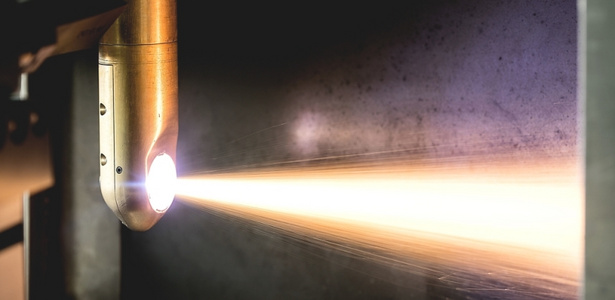Mindelheim/Hanover.Despite the paradigm shift in the automotive industry, future combustion engine technologies have not lost importance. While the discussion about particulate emissions from vehicles has indeed been slightly overshadowed by the issue of NOX emissions from diesel engines, particulate emissions from combustion engines, tire wear and braking abrasion remain in the limelight. This is one of the main reasons why, several years ago GROB, began its research into how the piston/cylinder friction and hence the microstructure of the cylinder faces in the combustion engine can be tribologically improved. In addition, GROB has been one of the few suppliers for over five years that can offer complete manufacturing lines for machining crankcases, including the entire process chain (preparation, activation, thermally sprayed layer, hard machining) for the coating process.
Atmospheric plasma spraying (APS 2) is used for this purpose. This is a technology in which a very thin steel coating with ideal thermo-mechanical properties is applied to the cylinder bore surface. It is wear resistant and low-friction and creates the best conditions for fuel-efficient gasoline and diesel engines. GROB technicians have now achieved another important step in the further development of APS 2 technology by successfully investigating the microstructure of the thermally sprayed layer to determine which requirements must be satisfied in order to better meet the future requirements for harmful particle emissions from engine oil consumption. With this new technology developed by GROB, the piston-cylinder friction of combustion engines can actually be reduced by at least 50 percent.
The APS 2 process is already being used by well-known automobile manufacturers in the production of 4- and 8-cylinder engines, and manufacturers of drive systems for products in the power sports sector are also working closely with GROB in the field of coating technology.

